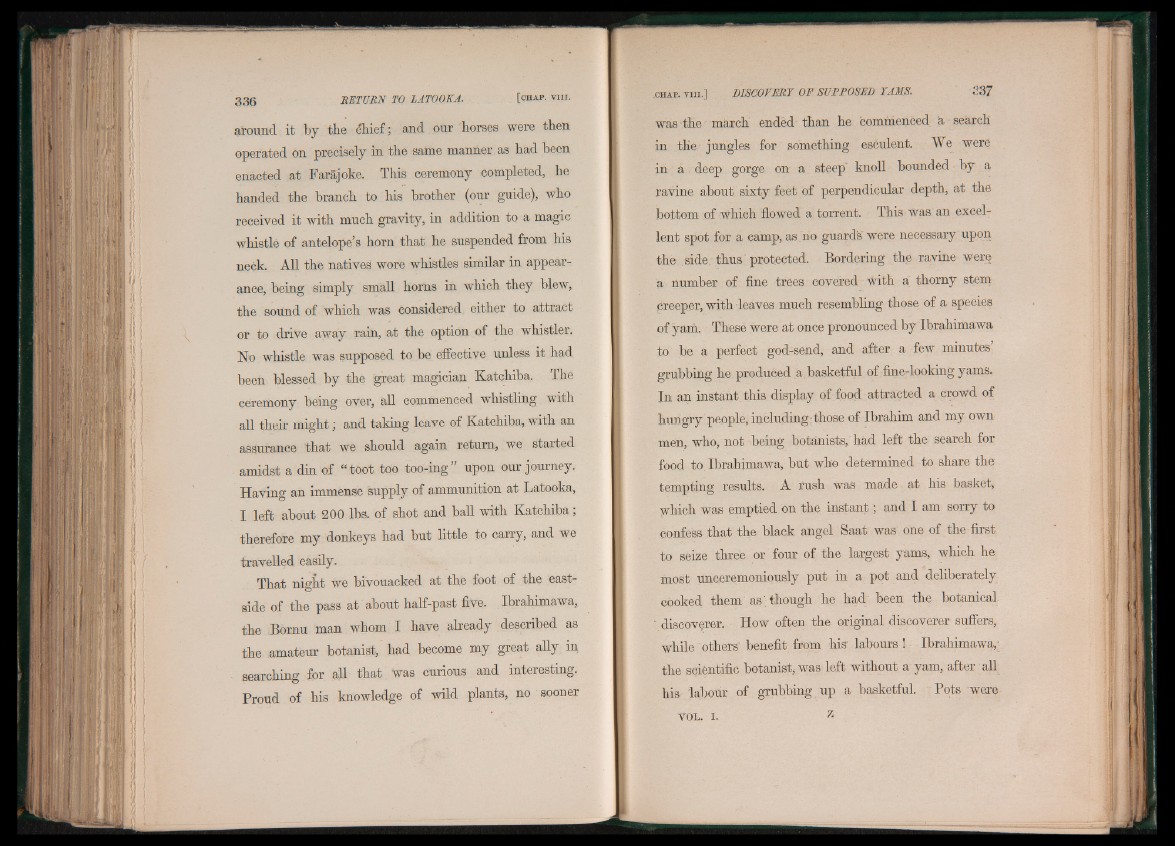
around it by the chief; and our horses were then
operated on precisely in the same manner as had been
enacted at Farajoke. This ceremony completed, he
handed the branch to his brother (our guide), who
received it with much gravity, in addition to a magic
whistle of antelope’s horn that he suspended from his
neck. All the natives wore whistles similar in appearance,
being simply small horns in which they blew,
the sound of which was considered either to attract
or to drive away rain, at the option of the whistler.
No whistle was supposed to be effective unless it had
been blessed by the great magician Katchiba. The
ceremony being over, all commenced whistling with
all their might; and taking leave of Katchiba, with an
assurance that we should again return, we started
amidst a din of “ toot too too-ing” upon our journey.
Having an immense supply of ammunition at Latooka,
I left about 200 lbs. of shot and ball with Katchiba;
therefore my donkeys had but little to carry, and we
travelled easily.
That night we bivouacked at the foot of the east-
side of the pass at about half-past five. Ibrahimawa,,
the Bornu man whom I have already described as
the amateur botanist, had become my great ally in
searching for all that was curious and interesting.
Proud of his knowledge of wild plants, no sooner
was the march ended than he commenced 'a search
in the jungles for something esculent. We were
in a . deep gorge on a steep" knoll bounded by a
ravine about sixty feet of perpendicular depth, at the
bottom of which flowed a torrent. This was an excellent
spot for a camp, as.no guards were necessary upon
the side; thus’protected. Bordering the ravine were
a number of fine trees covered with a thorny stem
preeper, with leaves much resembling those of a species
of yam. These were at once pronounced by Ibrahimawa
to be a perfect god-send, and after a few minutes
grubbing he produced a . basketful of fine-looking yams.
In an instant, this display of food attracted a crowd of
hungry people, including dhose of Ibrahim and my own
men, who, not being botanists, had left the search for
food to. Ibrahimawa, but who determined to share the
tempting results. A rush Was made at his basket,
which was emptied on the instant; and I am sorry to
confess that the black angel Saat was one of the first
to seize three or four of the largest yams, which he
most unceremoniously put in a pot and deliberately
cooked them as'though he had been the botanical
' discoverer. How often the original discoverer suffers,
while others’ benefit from his- labours ! Ibrahimawa,!
the scientific botanist, was left without a yam, after all
his labour of grubbing up a basketful. Pots were